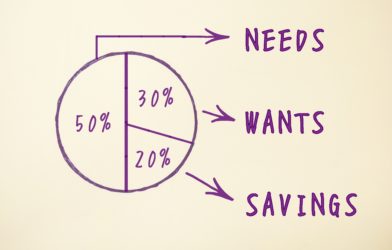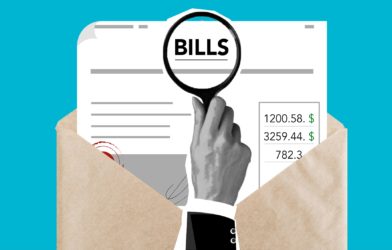Investing in real estate is an excellent way to make money and build wealth. Prices of recently listed homes have increased by 13.5% as of March 2022, while the costs of newly listed homes in major urban areas like New York, Chicago, and Dallas/Fort Worth climbed by 9.1%.
However, you may not know where to start with the different ways to invest in real estate, and you might be worried about making mistakes and losing money if you choose the wrong method.
Don’t worry, this comprehensive post will discuss what investing in real estate entails and provide some tips for owning real estate. Additionally, you’ll learn several ways to invest in real estate that don’t involve owning properties.
What is real estate investment?
Real estate investing is the practice of purchasing real estate as a way to make money rather than as a primary residence. In other words, it’s when you buy a property to generate regular income from it rather than to live in it yourself.
Many investors use real estate investment as a strategy to build a more diversified portfolio. Real estate investing can also help you reach your financial goals quicker because, when done correctly, it can offer higher returns than other investments.
However, with any investment, there are risks involved. You can minimize these by diversifying your investments and doing your research.
7 Ways to Start Investing in Real Estate
Real estate investments help real estate investors generate income passively. Real estate is considered a stable investment, and over time it usually outperforms the stock market.
Different types of real estate investments are subject to special tax rules and regulations. You should always consult with industry experts or long-time investors before deciding what style of real estate investing is right for you.
1. Real estate investment trusts
Individuals may invest in large-scale, income-producing real estate through real estate investment trusts (REITs). A company that owns, manages, or finances real estate that generates revenue is known as REIT. Shares of a REIT can be bought via brokerage services.
The two types of REITS are equity and mortgage. Equity REITs invest in properties like commercial real estate, while mortgage REITs lend money to property owners and investors. REITs are a great way to invest in real estate without purchasing a property.
2. House hacking
House hacking is a type of real estate investing where you purchase a property or use your own home and live in it while renting out the other rooms to tenants for monthly rent. It’s an excellent way to start real estate investing.
It allows you to live for free or cheaply while also generating income from your tenants to settle your monthly mortgage payment. To successfully house hack, you need to find a property that can have multiple tenants and is in a popular location.
3. Rental properties
Purchasing rental properties is another great way to start your real estate investments. In buying a rental property, you can generate passive income from the monthly rent that your tenants pay.
To succeed with this strategy, you need to find a good location for your investment properties, which should be in good condition. You may also want to hire a property manager to source responsible tenants who will take care of the properties and pay on time.
4. Real estate investment groups
A company that focuses the majority of its resources, both financial and human, on real estate is known as a real estate investment group (REIGs). REIGs may decide to buy, refurbish, sell, or finance properties to generate income.
REIGs are similar to real estate limited partnerships. They are excellent ways to start real estate investing because they enable you to make investments without having to raise all the capital yourself.
To succeed with this strategy, you need to find a good REIG that is well managed and has a good track record. Other investors in the group will also be an essential factor in your success.
5. Real estate mutual funds
A type of investment known as a real estate mutual fund collects money from numerous investors and invests it in a real estate portfolio. These assets include REITs, mortgage-backed securities, exchange-traded funds, publicly traded REITs, and other real estate-related investments.
Real estate mutual funds are a great way to invest in real estate without purchasing a property. You will want to identify a top-notch real estate mutual fund that is expertly run and has a successful past performance or track record.
6. Land speculation
Land speculation is when you buy properties intending to sell them for a profit in the future. This can be risky, but if you search the local market and find land with high potential, you could resell it to a land developer or someone who wants to build their own house.
When you’re a land real estate investor, you’ll need to be patient and wait for the right buyer. Additionally, depending on how quickly you sell the property and how much money you make on it, you may need to pay taxes on capital gains.
7. Online real estate platforms
Online platforms let you invest in real estate without buying properties. These online real estate platforms typically focus on real estate crowdfunding, which will enable you to buy a property by combining your funds with other investors.
Some popular online platforms include Roofstock and Fundrise. Different platforms will allow you to invest in different types of properties, such as a multi-unit building, multifamily building, single-family home, office buildings, or apartment buildings.
Benefits of real estate investing
Passive income, consistent cash flow, advantages on property taxes, diversification, and hedging against inflation are all advantages of indirect and direct real estate investments.
Moreover, rental income from commercial or residential real estate, appreciation, and earnings from businesses that rely on the property are how real estate investors profit from their real estate investments.
Frequently asked questions
How long should you hold an investment property?
The time frame for holding an investment property depends on the type of property and the investor’s goals. For example, an investor wanting a long-term investment for property appreciation may hold a property for ten years or more.
On the other hand, an investor looking to make quick money may “flip” the property and sell it within a year. House flipping can involve fixing up a house to sell to a new homeowner or buying a property at a discount and selling it to real estate developers for development.
What are the risks of investing in real estate?
The risks of investing in real estate include the potential for loss of principal, illiquidity, and the need for ongoing maintenance, repairs, and property management. Additionally, real estate investments are subject to market risk, which means their value may fluctuate depending on economic conditions.
How much should you invest in real estate?
The amount you should invest in real estate depends on your financial goals and your risk tolerance. For example, investors looking for long-term appreciation may only invest a small percentage of their portfolio in real estate. In contrast, investors looking for significant cash flow or short-term income may invest a larger portion of their portfolio in real estate.
Key takeaways
Investing in real estate is an effective way to build your wealth. There are many different strategies that you can use, and the best strategy for you will depend on your financial goals and your risk tolerance.
While some people prefer to invest their money in the stock market rather than in the real estate market because it does not require much time or money, real estate provides many advantages over stocks. The most important thing is to research and carefully consider your options before making any decisions.












